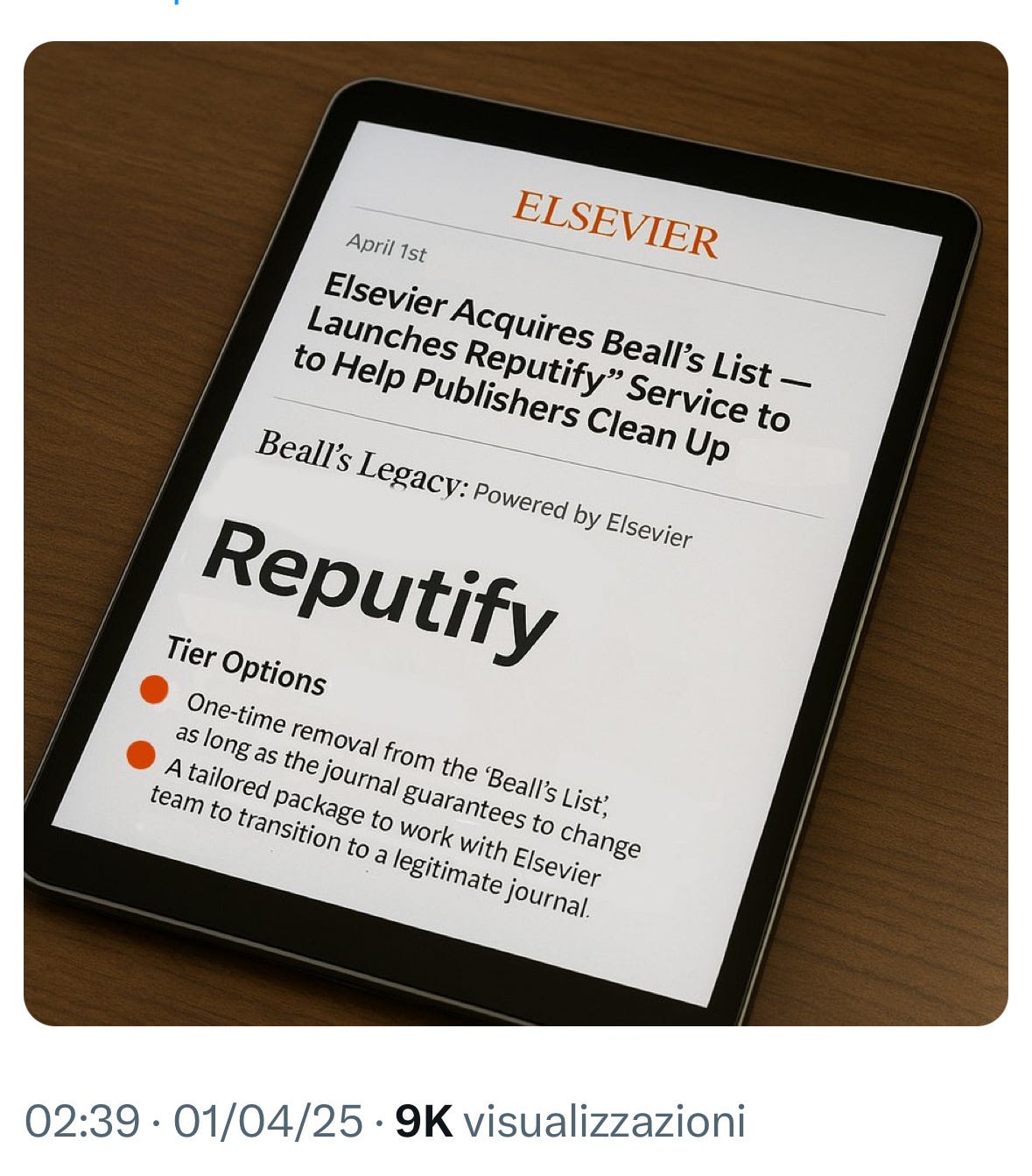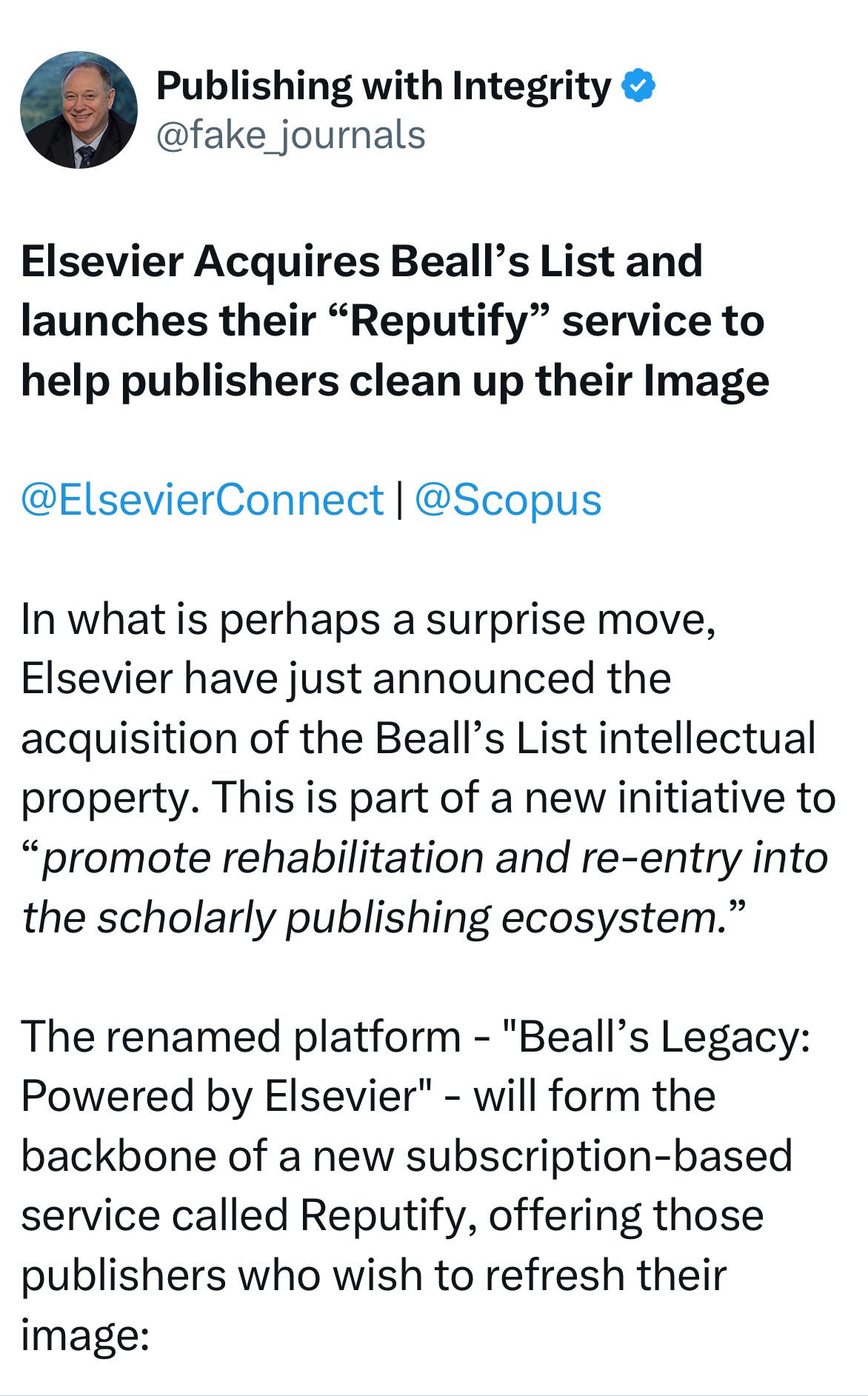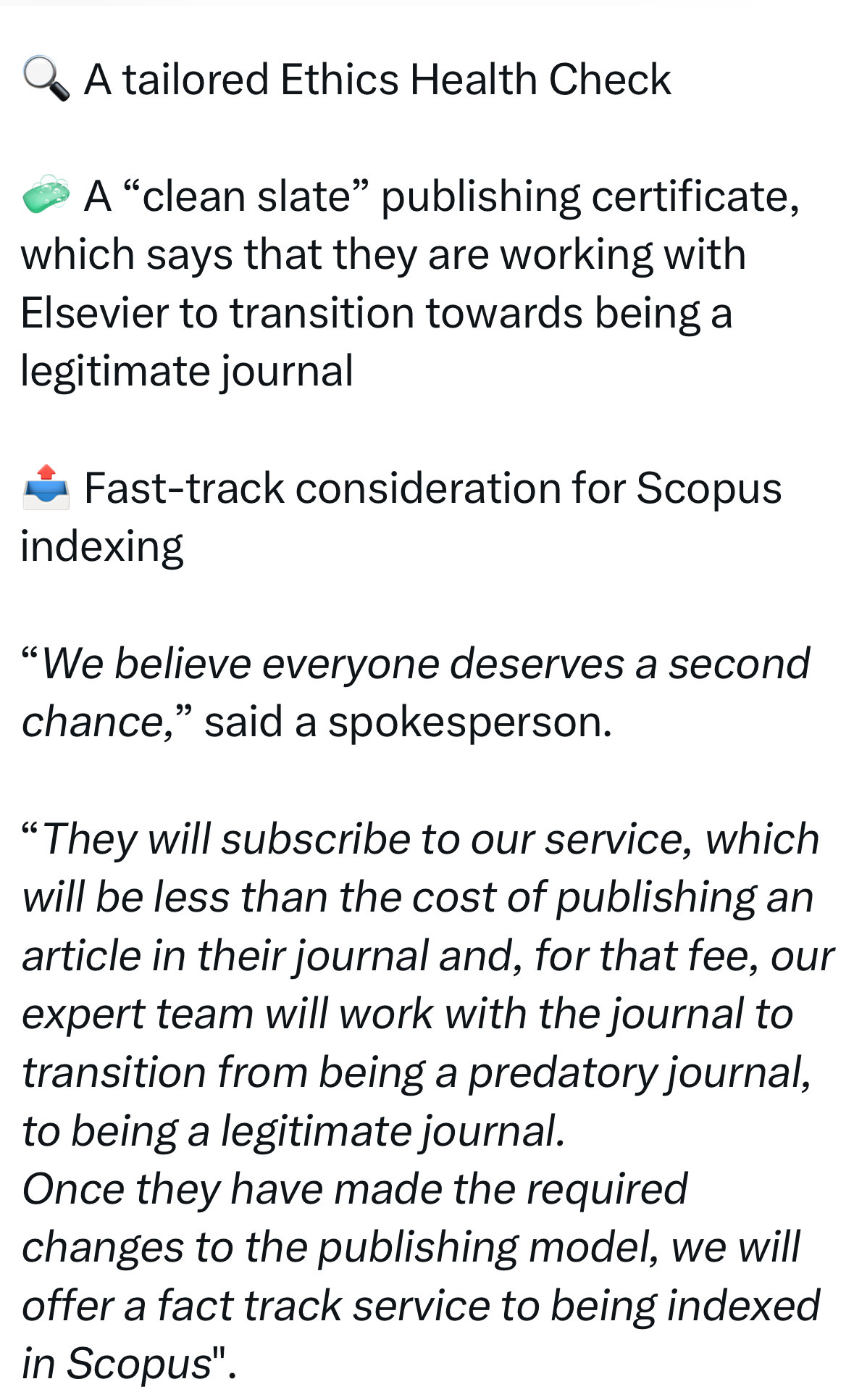No, Elsevier did not acquire Beall’s List – It was an April Fool’s prank. Here’s what researchers should really know about predatory publishing.
On April 1st, the X profile of “Publishing with Integrity” an organisation known for spotlighting ethical challenges in scientific publishing—deliberately posted a satirical announcement claiming that the publisher Elsevier had acquired Beall’s List to launch a new product called “Reputify.”
Despite being intended as an April Fool’s joke, the post gained significant traction, causing confusion among researchers and professionals in the publishing community.
Let’s set why this prank could have been easily detected, regardless of an April’s fool.
Beall’s List, once curated by librarian Jeffrey Beall, was a respected resource to help researchers identify potentially predatory journals. The original list was taken offline in 2017.
Why would Elsevier acquire an old repository which had not been updated for many years?
As a matter of fact, many researchers and even lecturers who present on topics such Open Access and Predatory Publishers still refer to Beall’s list as a point of reference, even if completely outdated
While satire can be a powerful tool, misinformation (or lack of updated and reliable data!) can have real consequences in academic publishing, especially when it concerns issues as serious as predatory journals.
This is why continous education and training for researchers is so important and one of the main points on which I constantly focus, especially critical appraisal and the correct use and understanding of primary sources.
How to assess journal credibility in 2025:
Verify indexing: look for the journal in the Directory of Open Access Journals (DOAJ), Clarivate’s Web of Science and Scopus (indeed, a real Elsevier database!)
Evaluate peer review: ensure the journal uses a transparent, rigorous peer-review process.
Check transparency: publication fees, editorial boards, and author guidelines should be clearly stated - before submitting a manuscript to a journal, use the THINK CHECK SUBMIT checklist
Use blacklists and whitelists: tools as Cabell’s Scholarly Analytics help identify predatory publishers and reliable outlets.
As the academic community continues to fight unethical practices in publishing, it’s more important than ever to rely on verified information and credible tools and consult experts in the field, for training.




